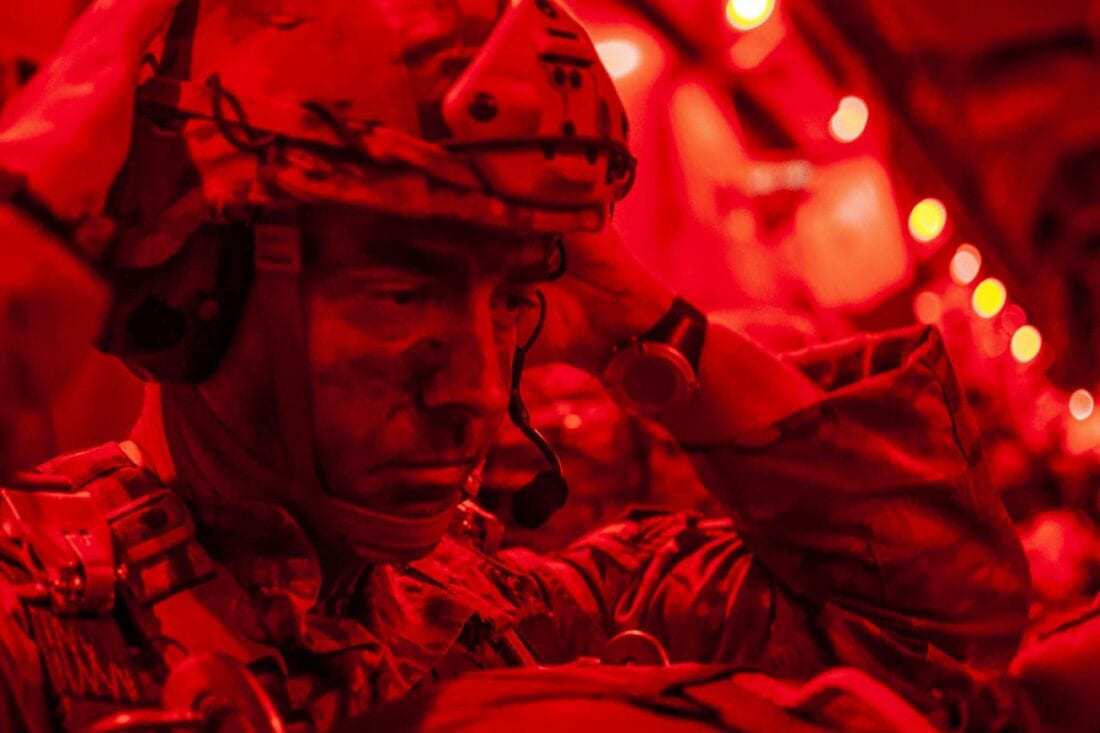I’ve taken a close interest in civil‐military relations for decades. I was taught the importance of civilian control over the U.S. military as a young NROTC midshipman. While on active duty, I opined publicly in the Naval Institute’s Proceedings on the reaction of servicemembers to Bill Clinton’s election as president. And in graduate school, I carefully studied several incidents from the 1950s, when senior military officers defied the wishes of the sitting president, and took their concerns about the state of the nation’s defenses directly to the American people. These varied experiences affirmed the original lesson: the U.S. military must strive to avoid becoming wrapped up in the nation’s politics.
But this isn’t easy. The U.S. military is held in very high regard by the American people, at a time when most institutions are not. Unsurprisingly, politicians and policy advocates often invoke the support of members of military, both active duty and those no longer serving, to rally support on particular issues. Indeed, researchers Tyler Jost and Joshua Kertzer found that Americans disproportionately value the opinions of those with military experience — even on issues of purely domestic concern.
In the week since George Floyd, an unarmed black man, was killed by a white police officer in Minneapolis, peaceful protests and demonstrations have spread to a number of American cities. Some have turned violent (why remains in dispute). Predictably, some want the U.S. military to solve the problem. Sen. Tom Cotton (R-AR) called for the 101st Airborne to deal with the “terrorists.” Military helicopters buzzed protesters in DC, and Secretary of Defense Mark Esper and General Mark Milley, the chairman of the Joint Chiefs of Staff, appeared prominently with President Trump as he strolled across a public park (cleared of peaceful protesters minutes before by tear gas) and stood before St. John’s Episcopal Church for a photo op. Earlier in the day, Esper had explained to America’s governors of the “need to dominate the battlespace.”
Thankfully, others with military service are pushing back. Gen. Martin Dempsey, who also served as chairman of the Joint Chiefs, tweeted “America is not a battleground. Our fellow citizens are not the enemy.”
Meanwhile, a particularly poignant and eloquent statement by a currently serving member of the U.S. military gives me a glimmer of hope. In a long thread on Twitter, Kaleth O. Wright, Chief Master Sergeant of the Air Force, spoke both as black American, and as a representative of his service, addressing himself chiefly to those also serving in the Air Force. He explained:
While we can’t change the world, we can change the communities we live in and more importantly, those where our Airmen strive to be seen, heard, and treated as human beings…
[…]
What should you be doing? Like me, acknowledge your right to be upset about what’s happening to our nation…
But you must then find a way to move beyond the rage and do what you think is right for the country, for your community, for your sons, daughters, friends and colleagues…for every Black man in this country who could end up like George Floyd.
[…]
Like you, I don’t have all of the answers, but I’m committed to seeing a better future for this nation. A future where Black men no longer suffer needlessly at the hands of White police officers, & Black Airmen have the same chance to succeed as their White counterparts.
Trust me, I understand this is a difficult topic to talk about… Difficult…not impossible… Difficult…but necessary.
He closed as he began his post:
Who am I?… I am Kaleth. I am a Black Man who happens to be the Chief Master Sergeant of the Air Force and I am committed to making this better.
The exalted status that the U.S. military currently enjoys is unhealthy in a constitutional republic. Nevertheless, Americans could learn how to emerge from the current crisis by listening to those who wear the uniform — without expecting them to save us by waging war here at home.
Christopher Preble is the vice president for defense and foreign policy studies at the Cato Institute. He is the co‐author, with John Glaser and A. Trevor Thrall, of Fuel to the Fire: How Trump Made America’s Broken Foreign Policy Even Worse (and How We Can Recover) (Cato Institute, 2019), and the author of four other books, including Peace, War, and Liberty: Understanding U.S. Foreign Policy (Libertarianism.org, 2019) and The Power Problem: How American Military Dominance Makes Us Less Safe, Less Prosperous, and Less Free (Cornell University Press, 2009). He coedited, with John Mueller, A Dangerous World? Threat Perception and U.S. National Security (Cato Institute, 2014); and, with Benjamin H. Friedman and Jim Harper, Terrorizing Ourselves: Why U.S. Counterterrorism Policy Is Failing and How to Fix It (Cato Institute, 2010).

